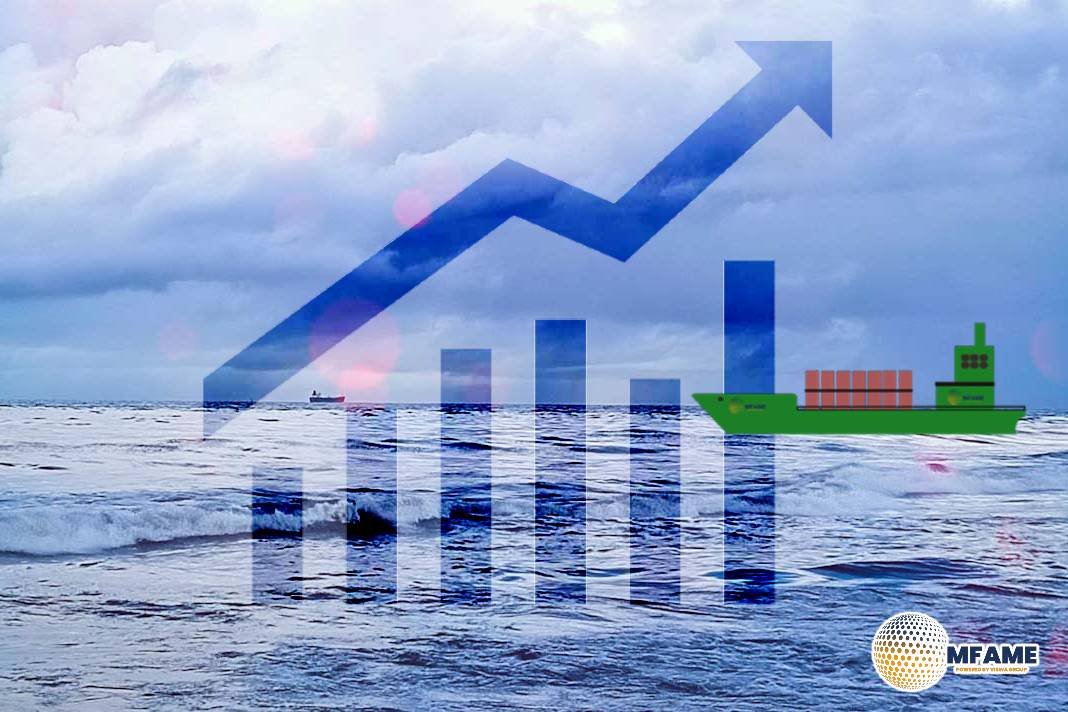 The aftermath of the pandemic and ongoing geopolitical tensions have prompted a reevaluation of supplier strategies among global companies. While 63% of surveyed companies aim to diversify their supplier portfolio, 37% remain cautious, opting to reduce suppliers due to uncertainties stemming from geopolitical crises, says an article published on ajot website.
The aftermath of the pandemic and ongoing geopolitical tensions have prompted a reevaluation of supplier strategies among global companies. While 63% of surveyed companies aim to diversify their supplier portfolio, 37% remain cautious, opting to reduce suppliers due to uncertainties stemming from geopolitical crises, says an article published on ajot website.
Summary
- Geopolitical tensions prompt reevaluation of supplier strategies among global companies.
- 63% of surveyed companies aim to diversify supplier portfolio; 37% opt to reduce suppliers due to uncertainties from geopolitical crises.
- Persistent tensions in eastern Europe and the Middle East disrupt trade patterns, necessitating a redesign of supplier mixes for supply chains.
- Freight forwarders express concerns over fewer partners in the Middle East, emphasizing the need for trusted alliances amidst heightened risks.
- Container trading and leasing rates plateau after the conclusion of the Chinese New Year holiday period.
Impact Of Geopolitical Tensions On Trade Patterns
Persistent tensions in eastern Europe and the Middle East have disrupted trade patterns, necessitating a redesign of supplier mixes for supply chains. Freight forwarders, particularly affected by the Middle East conflict, express concerns over fewer partners in the region and the need for trusted alliances amidst heightened risks of sanctions and uncertainty.
Container Trading And Leasing Rates Plateau
Following the conclusion of the Chinese New Year holiday period, container trading and leasing rates, which had been steadily rising since November 2023, reached a plateau. The expected reduction in demand post-Chinese New Year failed to sustain the upward momentum of rates.
Forecasts And Trends In Container Prices
Forecasts predict an 8-16% decline in container prices in China over the next two months, reflecting the cyclical nature of post-Chinese New Year demand reduction. Similar declines are anticipated in the United States, Vancouver, Toronto, and Europe. Despite the lull in demand, significant week-on-week fluctuations in market prices persist, influenced by the ongoing Red Sea crisis and capacity constraints.
Supply Chain Professionals’ Sentiment
While cyclical forecasts indicate a decline in rates, supply chain professionals remain optimistic about container price hikes in March, influenced by the ongoing Red Sea crisis and its perceived impact on global supply chains. The Container xChange price sentiment index reflects this optimism, reaching an all-time high in February 2024.
Challenges In Container Market Dynamics
India grapples with container rate volatility, with Nhava Sheva and Chennai experiencing robust prices due to container scarcity induced by the Red Sea crisis. Meanwhile, China faces challenges in balancing Carrier Owned Container (COC) and Shipper Owned Container (SOC) leasing prices, with a slow transition back to COC usage amid market price fluctuations and mismatched price expectations between users and suppliers.
Considerations For Future Market Dynamics
As businesses navigate inflationary pressures and changing consumer behaviors, monitoring global supply chain dynamics remains crucial. Anticipating disruptions and adjustments in trade patterns will be vital for adapting to evolving market conditions and ensuring the resilience of supply chains.
Did you subscribe to our daily Newsletter?
It’s Free! Click here to Subscribe
Source: ajot


















